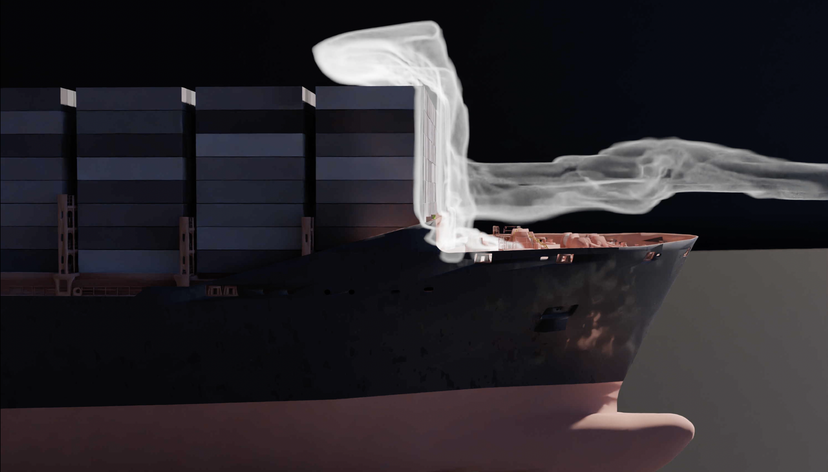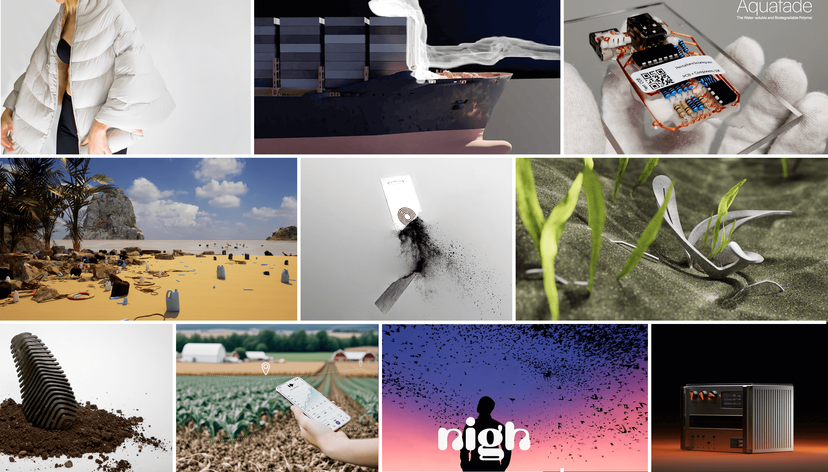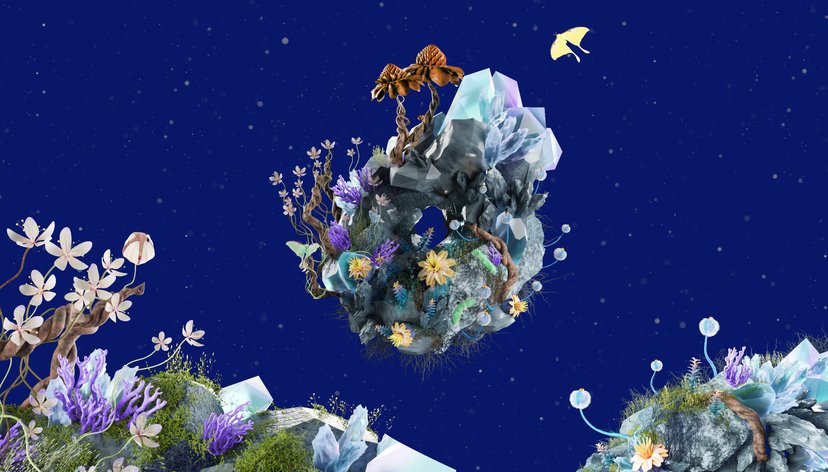The Finalists: Terra Carta Design Lab 2023/24
Jump to
Following the global success of the inaugural Terra Carta Design Lab in 2021/22, the Royal College of Art has partnered for a second time with the Sustainable Markets Initiative’s Terra Carta Design Lab to discover student-led, high-impact solutions to the climate crisis.
The Sustainable Markets Initiative has invited students and recent alumni (who have graduated in the last five years) from the RCA and three other prestigious international design universities to address the devastating damage being done to our planet. Participants were invited to create breakthrough solutions for Nature, People and Planet, inspired by the Sustainable Markets Initiative guiding mandate – the Terra Carta.
This year’s Terra Carta Design Lab has expanded its reach to also partner with the Dubai Institute of Design and Innovation (UAE), National Institute of Design Ahmedabad (India) and Rhode Island School of Design (USA).
Forty finalists, including ten from the Royal College of Art, have been selected from across the four participating universities to advance to a final global judging round before eight overall winners are announced in autumn 2024.
Ten RCA finalists for the Terra Carta Design Lab 2023/2024
Aquafade
Aquafade tackles e-waste through a soluble-on-demand polymer composite for printed circuit boards (PCBs) and housings. This composite deteriorates in warm water overnight, revolutionising recycling by eliminating costly separation. E-waste is responsible for 70% of global toxic waste, with 90% attributable to non-biodegradable epoxy glass laminate and plastic. The resulting emissions lead to one million premature deaths and cost the UK £82.9 million annually.
The Aquafade team: Samuel Wangsaputra (MA Information Experience Design, 2019).
Biofonic
Biofonic is developing groundbreaking technology to accelerate sustainable agriculture and soil conservation. Their system is designed to make ecosystem-led farming accessible and affordable, with huge potential impact on the environment and farmers’ bottom lines. Soil represents the most biodiverse (and least understood) ecosystem on the planet, home to more than half of all Earth’s species. It is this ever-changing, living system that creates the conditions for life above ground to thrive, building soil structures that are drought and flood resistant and delivering nutrients efficiently to plants. Biofonic’s autonomous, multi-solution system can scale up or down to any size and type of agricultural operation and offer significant savings with huge potential impact to chemical reduction, carbon sequestration, farm yields, food quality, and climate resilience.
The Biofonic team: Alexandra Park and Jasper Mallinson (MA/MSc Innovation Design Engineering, 2023).
BlueNose
Ninety per cent of cargo goods are carried by sea and the maritime sector is responsible for 3% of global CO2 emissions, making it one of the world’s most concentrated sources of pollution. BlueNose develops solutions to improve the aerodynamics of merchant navy vessels, particularly container ships, in order to reduce their fuel consumption by up to 5%. This is done by generating structures that are developed using an in-house algorithm that generates optimised, custom shapes based on the operational conditions of the targeted ships. This reduction in fuel consumption will directly reduce greenhouse gas emissions, translating to emission reductions of 3,000 tons of CO2 per ship, per year on average.
The BlueNose team: Léon Grillet (MA/MSc Innovation Design Engineering, 2021).
DeepDive XR
DeepDive XR is a collective creating interactive, immersive, gamified and inclusive XR experiences to tackle urgent climate issues. Their mission is to empower climate advocates and educate young minds for a sustainable future. The global climate crisis demands immediate, responsible action. VR experiences evoke strong emotional responses, crucial for learning and retention, making users feel truly involved. Through compelling storytelling, DeepDive XR highlights the urgency of environmental crises and solutions, empowering individuals for environmental stewardship and sustainable change.
The DeepDive XR team: Janmejay Singh, Armelle Mihailescu, Riya Mihajan and Selin Öztürk (MA Digital Direction).
Nigh
Nigh creates large-scale immersive experiences to raise funds and awareness for the protection of our planet. Through narratives of ecological urgency, Nigh connects people, brands and charities across realities; educating and entertaining the public, while raising funds for certified conservation projects and offering cause-related marketing for brands that invest in nature. Nigh’s vision is to leverage the full creative potential of immersive storytelling, to expand realities, and reawaken the connection to the world around us.
The Nigh team: Paul Baule (MA Digital Direction).
Ponda
Ponda is a biomaterials company developing novel textiles from truly regenerative fibres. Ponda connects the regeneration of some of our most precious ecosystems, wetlands, with the production of responsible materials for the textile industry, empowering fashion brands to weave regeneration into the clothes we wear. Ponda’s first product, BioPuff® is a next-generation insulation that enhances biodiversity, captures carbon, and strengthens the resilience of our industry. This revolutionary insulation technology significantly reduces reliance on conventional fillers, representing a leap forward. BioPuff® offers excellent warmth, natural water repellency, and puffiness whilst also being cruelty-free and fully traceable from plant to puffer.
The Ponda team: Julian Ellis-Brown, Antonia Jara Contreras, Finlay Duncan and Neloufar Taheri (MA/MSc Innovation Design Engineering, 2020).
PulpaTronics
PulpaTronics develop recyclable commercial radio-frequency identification (RFID) tags for affordable and sustainable inventory management solutions. RFID tags are simple electronic circuits, comprising a microchip (silicon) for information storage, an antenna (copper, aluminium) enabling communication, and a substrate (plastic, paper). They are embedded in products for identification through radio signals. RFID tags are widely adopted for item tracking and inventory management. PulpaTronics provides more sustainable RFID tags that eliminate the need for metal mining, simplify manufacturing and streamline recycling, by replacing the metal antenna and laser-inducing a carbon-based conductive material onto paper instead. Using a chipless design, the tags store information in the geometric pattern of the conductor instead of a microchip. By using paper as a single material, the tags can be recycled six to seven times before being composted for minimal overall CO2 emissions. By reducing transportation, material and energy expenses, PulpaTronics cuts RFID tag costs in half. This offers an appealing alternative for businesses currently using barcodes.
The PulpaTronics team: Chloe So and Barna Soma Biro (MA/MSc Innovation Design Engineering, 2023).
Pyri
Wildfires destroy ecosystems, harm human health, and release emissions that exacerbate climate change in a compounding cycle. By the end of the century, extreme wildfires are predicted to increase by 50%, with the most significant increases in the Arctic and tropical forests (UN Environment Programme, 2022). Pyri is an innovative, low-cost wildfire detection system designed with remote, unprepared, and vulnerable communities in mind.
The Pyri team: Richard Alexandre, Richard “Blake” Goodwyn, Karina Gunadi, Tanghao Yu (MA/MSc Innovation Design Engineering).
Seagraft
The UK has lost 92% of its seagrass beds, and globally, seagrass beds are disappearing at a rate of 7% per year, making the task of seagrass bed restoration urgent. Aimed at restoring seagrass beds in coastal waters, Seagraft provides a highly efficient planting method for seagrass seeds and rhizomes, suitable for mud and sand seabeds.
The Seagraft team: Hongyu Wu, Mingchuan Yang, Zexi Gong (MA Design Products), Mengna Gao and Xiaozhuo Jiang (MA Service Design).
Vox Aeris
Vox Aeris is dedicated to addressing the critical issues of indoor air pollution and excessive energy consumption in building heating and ventilation (HVAC) systems, targeting two major crises at once. We spend 90% of our lives indoors, where air quality can be up to five times worse compared to the outdoors. Traditional air filters are costly to operate and often inefficient, with most buildings opting for low-grade ones to save a bit of energy, leading to poor air quality and high energy bills. Vox Aeris is developing a retrofittable device to drastically reduce the inefficiencies associated with traditional air filtration methods. Their acoustic agglomeration technology uses sound to enhance particulate matter capture while minimising energy use. By integrating its system into existing HVAC units, Vox Aeris aims to significantly reduce operational costs and improve air quality, allowing buildings to improve their filtration grade without having to undergo costly reconstruction.
The Vox Aeris team: Selene Sarı (MA/MSc Innovation Design Engineering, 2023).
Two highly commended projects
Cyanoskin
An innovative living paint designed to transform buildings into carbon dioxide-absorbing structures, reducing emissions and addressing urban pollution.
Led by Emma Money (MA Information Experience Design, 2023).
Selva
Selva Helps tropical smallholder farmers validate biodiversity credits through a platform that analyses bioacoustics data. Led by Peter Neyra (MA Design Products).
Eleven other projects were longlisted by the RCA internal judging panel, for their innovation, compelling project proposals and exceptional potential. These projects, along with the finalists and highly commended projects, took part in three weeks of intensive coaching within InnovationRCA.


